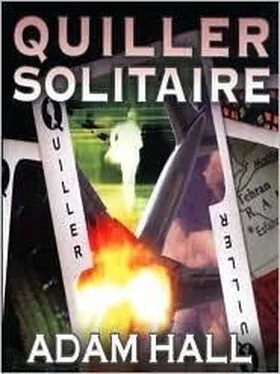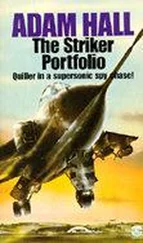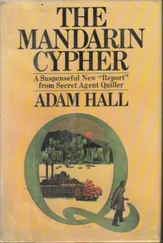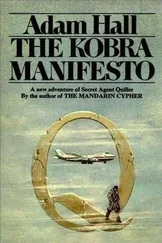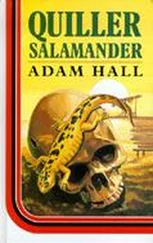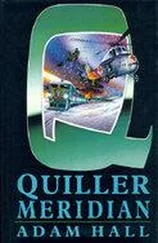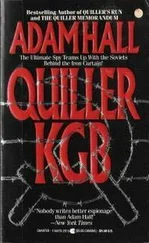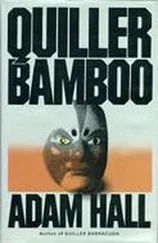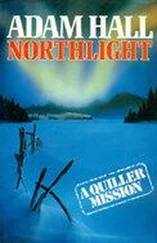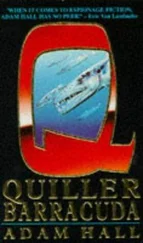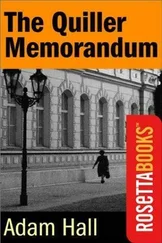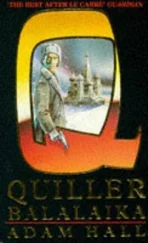The clock on the dashboard flicked to 7:05.
We had ten minutes left.
I said, 'Ibrahimi, I'd like to know something. Whether the exchange is made or not, do you have plans for me?'
I waited.
The hit men watched me. Beyond them I could see in the far distance the floodlit control tower at Dar-el-Beida.
Ibrahimi turned to look at me. 'My lips are sealed,' he said. 'But you should make your peace with Allah.'
A rose for Moira.
Through the windscreen I could see a twin-engined jet taking off, its splinter-sharp profile aslant against the brilliant haze of the starfields above the airport; it looked very like the company jet we'd flown from Berlin this morning. We'll be taking off at seven, George Maitland had told me at the palace. He and Dieter Klaus. Destination unknown, unknown at least to me.
You should make your peace with Allah.
It would be delivered to Moira, as specified in my will, a single rose, so that she should know.
7:11 on the dashboard clock, but what did it signify? That I should make my peace with Allah.
The driver took the Mercedes in through the gates to the freight area, showing the guard a piece of paper. He waved us through. A line of hangars made a black frieze against the horizon, and five or six aircraft stood at angles, big ones, freight carriers.
I couldn't see any ground crews, any vehicles on the move.
7:12. It was three minutes to the rendezvous. Ibrahimi was checking his jewelled wrist watch.
'Wait,' he told the driver in French.
The tyres whimpered on the tarmac as the big car was turned towards the wall of a freight shed, and we stopped in its shadow. The three-quarter moon was twenty or thirty degrees high, bright in a clear sky; the sirocco had died away towards evening as the air had cooled. There was traffic on the move near the main runway, the strobes of small planes flashing as they rolled.
The two hit men watched me from their jump seats. They hadn't put their guns away after I'd finished my call to London. They were aimed at me now, at the heart. The two men weren't watching my hands any more; they were watching my eyes. They were well-trained, and I knew from this slight but significant shift in their observation that they were expecting me to make some sort of attack on them, or on Muhammad Ibrahimi, very soon now, if at all. So perhaps they understood a little French, had heard what Ibrahimi had told me, and knew from experience that when the subject of an execution nears the moment of truth he tends to panic and strike out in a final attempt to save himself.
I haven't seen Moira for a long time, several months. She travels a lot, making those terrible movies, and of course I travel quite a bit too. I hope she is well.
Croder must have got his signals through extremely fast, but then we expect it of him: he has the attributes of a vampire and will draw blood in the instant if you cross him but when you're out in the field and he's in the Signals room you've got infinitely more chance of bringing the mission home than with anyone else. I didn't know what units he'd sent in to the rendezvous or how many there were, but he'd cleared them out in nine minutes flat, phoning them direct or phoning their coordination unit and telling them the rendezvous was cancelled, cancelled or postponed or moved or whatever. Of course they could still be parked in one of the hangars over there or behind the freight shed. Nothing was certain.
He'd done a good job, Croder, and it looked as if I had an absolutely clear field for whatever last-ditch attempt at salvation I might try. This was what I'd wanted, asked for and got, but at that time I'd thought there'd be something I could do at the flashpoint, turn the car over or go for these people, these monkeys, these stinking monkeys, steady, you'll have to watch it, there's no room for emotion, no room for panic here, it's too dangerous, thought there'd be something I could do at the flashpoint, yes, but in fact there wasn't, take some of them with me of course but that was all, an eye for an eye, but what shall it profit a man when the mission is over before its time, what precisely is the point in taking life out of spite? Pride, yes, but that's no answer.
The mission had ended when that plane had taken off just now. My objective had been to infiltrate Nemesis and stay within it until I'd learned enough to be able to destroy it and get clear, but there hadn't been a chance and Klaus was airborne for Midnight One and tomorrow there would be headlines. Nothing would have changed if I'd let London spring their trap: they'd have got Ibrahimi, that was all. They'd hoped to get Klaus, thought he'd be at the rendezvous. Nothing would have changed.
7:14.
One minute.
Adrenalin coursing through the veins, through the heart where the bullets would go. A feeling of lightness, of time slowing down, feelings that were familiar to me.
Ibrahimi told the driver, 'Go to the hangar over there, the second from the end. Hangar No. 5.'
We moved away, leaving the shadow of the freight building. I could see another vehicle on the move now, a dark-coloured van. It was going towards Hangar No. 5, as we were. London is very good with timing, very reliable.
'That will be the van,' I told Ibrahimi, 'with the warhead.'
'It is good,' he said.
The moonlight flashed on the star mascot as the big Mercedes turned.
'Here,' Ibrahimi told the driver. 'Stop just here.'
We were at the north-east corner of the hangar, not far from one of the big freight planes and a stack of crates with ropes across it. The tyres whimpered again on the smooth tarmac, and we stopped.
The clock flicked to 7:15.
Fifty yards away, in the shadow of the hangar, the dark van halted.
Silence came in.
You should make your peace with Allah.
But I would rather stop the presses, stop the headlines.
Try.
'One thing worried me,' I told Ibrahimi, 'when I was talking to my contact in London. He warned us that we'd have to watch out for the airport police. Do you remember?'
He turned his face to me. 'Yes,' he said.
'I think he had a point. We're still not certain we can get through this rendezvous successfully. There could still be a trap.'
I waited.
No one was getting out of the van over there.
'I'm thinking,' I said to Ibrahimi, 'of your personal welfare, at this point. There's no need for you to get out of the car yourself.'
Across the airport a commercial jet came in, nose up and then flattening as the smoke rose in puffs from the tyres. The sound hadn't reached us yet.
My hands were folded on my lap. The two men could see them in the moonlight that struck obliquely through the window. My hands were not folded with the left one holding the right wrist, gripping it. That technique couldn't work now, because these two had their guns out, didn't have to draw first. If I went for the elbow strike to Ibrahimi's throat it wouldn't connect with the tissues before the bullets came: they had their fingers inside the trigger guards, and like me they'd be feeling the adrenalin and would be fast, touchy.
The sound of the jet came in with a soft roar as it reversed thrust.
Ibrahimi had done his thinking.
'Order the man in front,' he told me, 'the German, to go across to the van and receive the warhead.'
I'd known it would be the man in front he would send out there, not one of the men in the back of the car, because they were watching me, protecting him.
I'd wanted the man in front to leave the car for two reasons. He was out of my reach, unlike the two in the rear, and Ibrahimi could conceivably walk across there into a hail of shots if in fact there were some people still hanging around here despite the call from London – and I wanted Ibrahimi to stay alive in case Allah was good to me and threw me a chance in a thousand and let me interrogate him. He was the last link I had with Nemesis, and might give me some information I could work with.
Читать дальше
